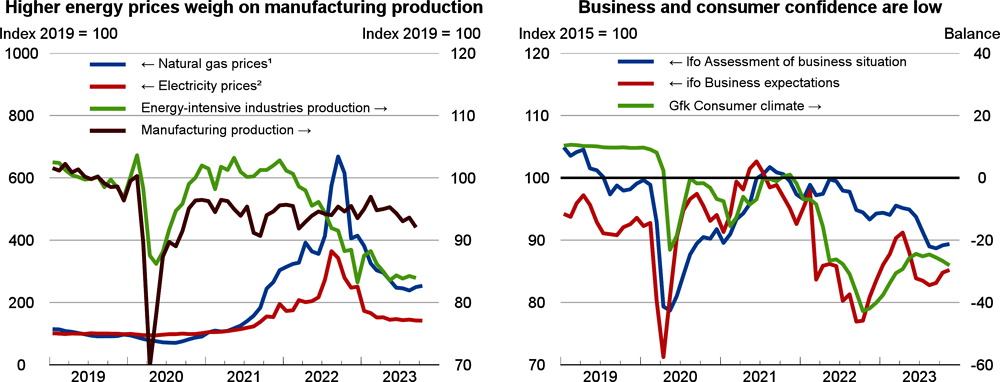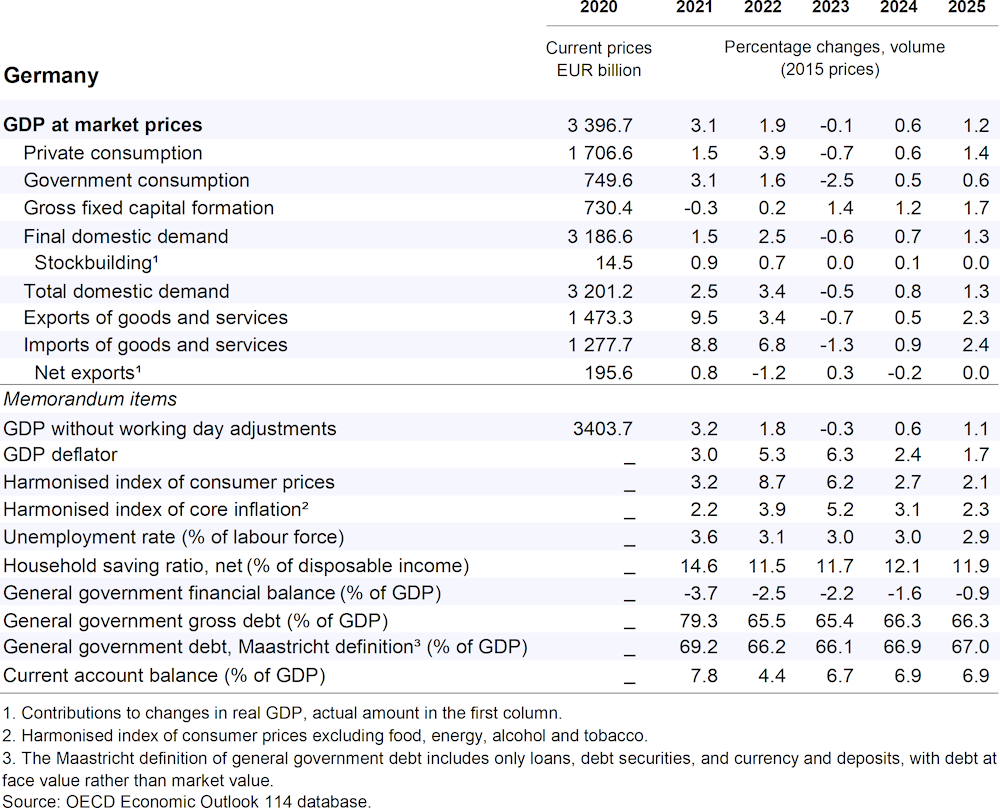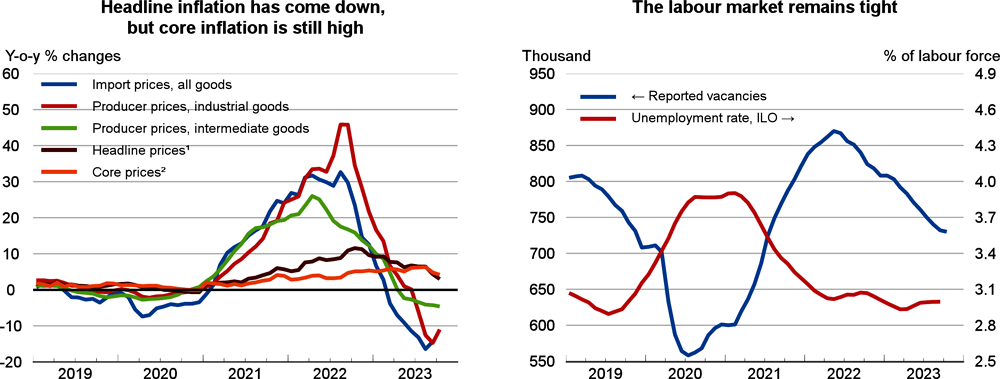The economy is projected to grow by 0.6% in 2024 and 1.2% in 2025, after contracting slightly in 2023. Decreasing inflation and rising wages will support real incomes and private consumption. High interest rates will weigh on residential investment and damp export demand for investment goods. However, non‑residential investment will gradually pick up due to support from high corporate savings and investment needs related to the relocation of supply chains, digitalisation and renewable energy expansion. This will be supported by rising public investment and fiscal incentives for green investments. Exports will slowly recover as global demand strengthens.
The decreasing fiscal deficit will help contain inflationary pressures. Improving infrastructure planning, approval processes and implementation capacity, particularly at the municipal level, would accelerate the energy transition and digitalisation. Skilled labour force shortages should be addressed by strengthening the work incentives of women, older workers and low-income earners, improving training and adult learning, and facilitating the recognition of the qualifications of migrants and refugees. Raising the quality of basic education and expanding access to early-childhood education is key to increase potential growth and reduce inequality.



